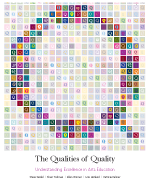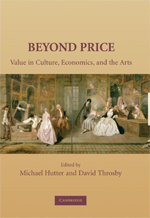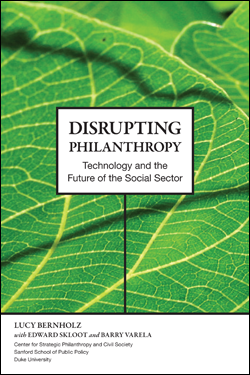Family Foundation
Family Foundation
October 2007, 32 pages. Independent Sector, 1200 Eighteenth Street NW, Suite 200, Washington, DC, 20036, 202-467-6100, www.independentsector.org
Read More...
December 2009, 32 pages. GrantCraft, The Ford Foundation, 320 East 43rd Street, New York, NY, 10017, 212-573-4879, www.grantcraft.org
Read More...2009, 12 pages. WolfBrown, 808A Oak Street, San Francisco, CA 94117, 415-796-3060, www.wolfbrown.com
“Creative capital is the network of understandings, values, activities, and relationships that individuals, organizations, and communities develop when they share what earlier generations have imagined and when they, in turn, generate and pass on what they imagine.”
Read More...May 2010, 49 pages. Center for Strategic Philanthropy and Civil Society, Sanford School of Public Policy, Duke University, Box 90524, Durham, NC, 27708, 919-613-7432 www.sanford.duke.edu
Read More...2009, 58 pages (12-page special supplement: Impact of the Market Decline). Association of Small Foundations, 1720 N Street NW, Washington, DC, 20036, 202-580-6560, www.smallfoundations.org
Read More...
October 2009, 105 pages. PennPraxis, 409 Durham Wing, School of Design, University of Pennsylvania, Philadelphia, PA, 10003, 215-573-8719, www.design.upenn.edu/pennpraxis
Download at: http://issuu.com/pennpraxis/docs/report_publicart
Read More...In the aftermath of the economic tsunami, many non-profit organisations will be called upon to do more with less. As in past recessions, they will work to protect a mounting roster of victims from hunger, homelessness, ill-health and physical abuse.
Board members, donors and managers in the social sector will need to summon their courage and embrace an “equity ethic” to ensure that they and the organisations they support will be able to stay the course for the people who need them. To do so, they will need to tame one of their strongest impulses: to do more.
Read More...
The Qualities of Quality: Understanding Excellence in Arts Education; By Steve Seidel, Shari Tishman, Ellen Winner, Lois Hetland, Patricia Palmer. Project Zero, Harvard Graduate School of Education (Cambridge, MA), 2009, 121 pages. Commissioned by The Wallace Foundation with additional support from the Arts Education Partnership
Read More...
Beyond Price: Value in Culture, Economics, and the Arts; Edited by Michael Hutter and David Throsby; Cambridge University Press, 2007, 324 pages
— Lewis Hyde
When I was in college, I had a great work-study job at an organization that placed students in internships with local nonprofits. It was a small outfit and a jack-of-all-trades sort of job. I answered phones, mocked up application forms, stuffed envelopes, filed, ran errands, organized open houses, and learned how to write a business letter. It wasn’t the sort of job you’d want to stay in for too long, but it was a fabulous introduction to the nonprofit sector. It gave me practical office skills to boot.
Read More...
